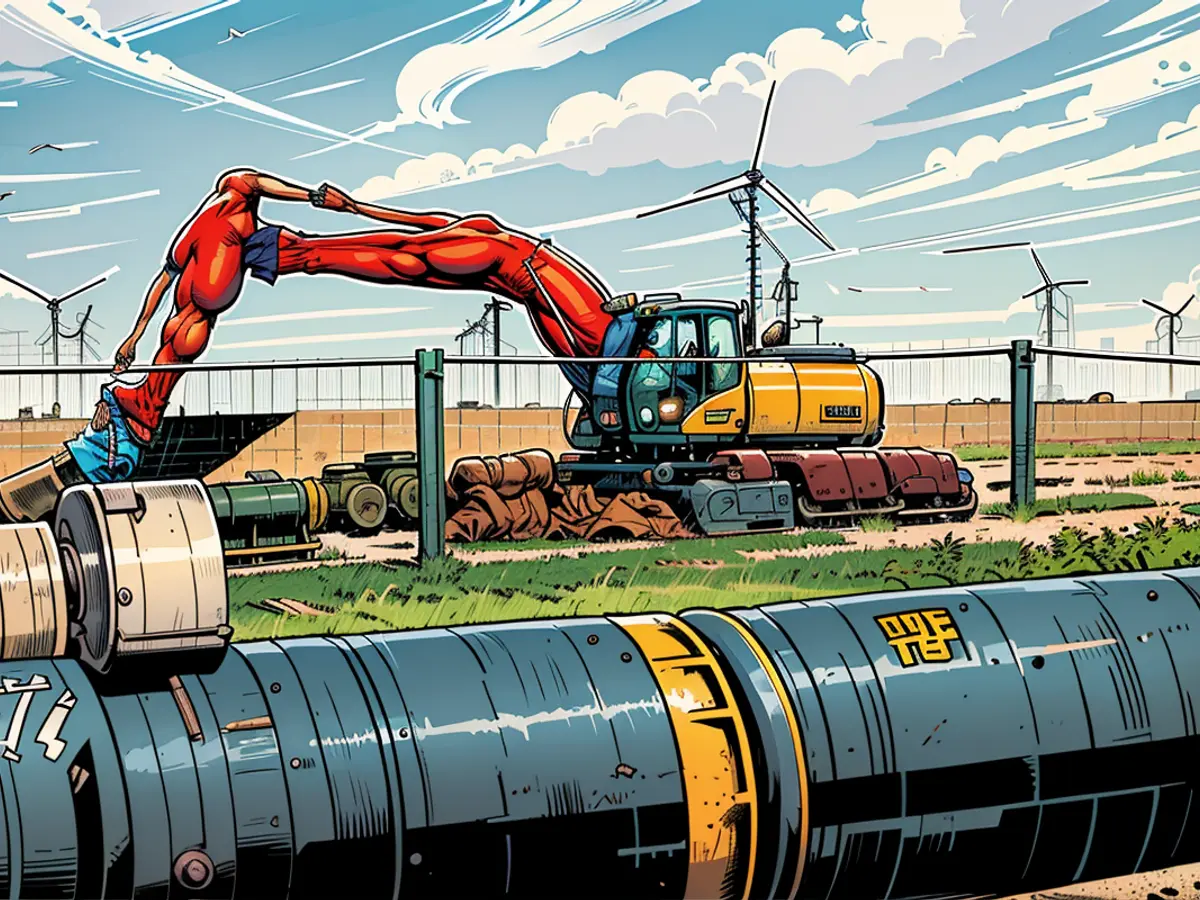Energy supply - Construction of hydrogen network should cost 20 billion Euros
The planned setup of a Hydrogen Core Network in Germany by 2032 takes another step forward. The transmission network operators presented plans to the Federal Government. The application includes pipelines with a total length of 9,666 kilometers, as the Federal Ministry of Economics and Climate Protection announced. The Federal Network Agency must now approve the plans.
Economics and Climate Protection Minister Robert Habeck (Greens) called the application a decisive step towards building the Hydrogen infrastructure. "It contains the autobahns of hydrogen networks." This would provide planning security for hydrogen producers, power plant and storage operators, and hydrogen consumers.
Consumption and production centers of hydrogen, as well as storage and import points, are to be gradually connected by 2032. The investment costs, according to the transmission network operators Gas (FNB Gas), amount to 19.7 billion Euro. Roughly 60% of the pipelines are currently transporting natural gas.
"With the Core Network, we create a central prerequisite for the successful long-distance transport of hydrogen in Germany and thus for the decarbonization of industry and energy supply", so Thomas Gößmann, CEO of FNB Gas.
All federal states are to be connected
The use of hydrogen is to play a key role in the climate-friendly conversion of the economy, for example in the steel industry. The first hydrogen pipelines are to go into operation next year. In addition to connecting central industrial sites, the Core Network, according to the ministry, aims for regional balance and embedding in the European hydrogen infrastructure. According to the application, all federal states are to be connected.
Import of hydrogen
Hydrogen is to be imported early via border crossing points. Germany will cover a large part of its hydrogen demand in the future via imports by pipeline or ship. The cabinet is to decide on an import strategy on Wednesday.
The Core Network is to be the essential basis for the development of the hydrogen transport infrastructure, but is then to be further developed into the grid. In 2026, the first network development plan for gas and hydrogen from the Federal Network Agency is to be approved.
Financing of the network
The pipelines of the Core Network are to be financed primarily through user fees of the network operators. The intermediate financing in the initial phase is to be covered through a so-called amortization account. This means that costs are to be spread out over time. Financial security by the state against "unforeseen developments" is planned. A part of the pipelines is to be particularly promoted by the federal government and the states.
- The Federal Network Agency, overseeing Germany's infrastructure, now needs to review and approve the plans for the Hydrogen Core Network.
- Minister Robert Habeck, from the Federal Ministry of Economics and Climate Protection, emphasized that the application represents a crucial step towards constructing the nation's Hydrogen infrastructure.
- According to the transmission network operators, the proposed Hydrogen Core Network will span 9,666 kilometers of pipelines, contributing significantly to Germany's energy supply decarbonization efforts.
- The Federal Government and various stakeholders, including hydrogen producers, power plant operators, and consumers, will benefit from the planned hydrogen infrastructure, providing them with much-needed planning stability.
- In line with the Berlin government's climate goals, the utilization of hydrogen is anticipated to play a crucial role in reinvigorating various industries, such as steel production, promoting climate-friendly economic transitions.
- The Core Network's initial phase will see the deployment of hydrogen pipelines across Germany, with border crossing points slated for early hydrogen imports to help cover the nation's future hydrogen demand.








